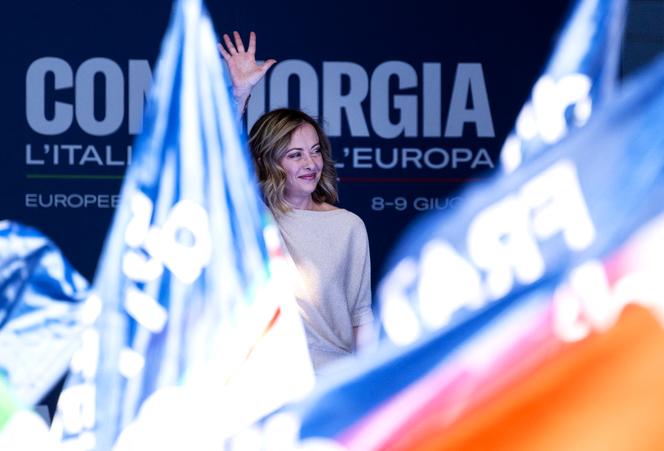


As Italian Prime Minister Giorgia Meloni prepares to host the G7 summit in Puglia from June 13 to 15, just a few days after the European elections (June 6-9), she can congratulate herself on having won the confidence of US President Joe Biden's administration. However, her national-conservative camp, represented by the Fratelli d'Italia party, has not distanced itself from the galaxy of former president and Republican candidate Donald Trump, with whom Meloni's forces have been mixing with for years.
Between Italy and the United States, networks have developed and are redoubling their activity in the run-up to the US presidential election in November. Admittedly, Meloni refrains from publicly supporting Trump in his legal woes, contrary to her ally and vice president of the council, Matteo Salvini (Lega, far right), who boasted of having spoken to him on the phone on June 5. She is no less enthusiastically received by those in the American Republican universe who are interested in Europe. Some go so far as to see in her the promise of a new Margaret Thatcher (1925-2013), British prime minister from 1979 to 1990 and conservative benchmark par excellence.
At the same time, Meloni has built up a warm relationship with Biden, symbolized in the eyes of the press by the kiss he placed on her forehead during the Italian leader's last visit to Washington on March 1.
In both the US and Europe, where the Italian prime minister plays the institutional game and makes herself unavoidable, the key to the Melonian paradox lies in the leader's turnaround on Ukraine. "At first, concern prevailed," said Charles Kupchan, senior fellow at the Council on Foreign Relations and adviser on European affairs in the administrations of presidents Bill Clinton and Barack Obama. "Then Meloni proved solid in her support for Kyiv, earning her a place in the Oval Office. We also realized that she hadn't joined populists Viktor Orban of Hungary or Jaroslaw Kaczynski of Poland in their opposition to the rest of Europe. She has integrated herself into the institutions." From an American perspective – Democrat or Republican – Italy's exit from China's Belt and Road Initiative, in December 2023, is also to the credit of the council president.
It was not so long ago, however, that Meloni was extolling the virtues of Russian President Vladimir Putin, condemning sanctions against Moscow and calling for the destruction of the European Union, as in 2019 at the Conservative Political Action Conference (CPAC), the major annual meeting of American conservatives. Trump then served as a major reference for a politician still very much in the minority. Meloni, courted by MAGA ideologue Steve Bannon, then called Obama, of whom Biden was vice president, a "friend of Islamic fundamentalists." During the January 6, 2021 assault on the Capitol by supporters of Trump (whose victory she had openly wished for), she presented the outgoing president as a peacemaking figure.
You have 55.14% of this article left to read. The rest is for subscribers only.
